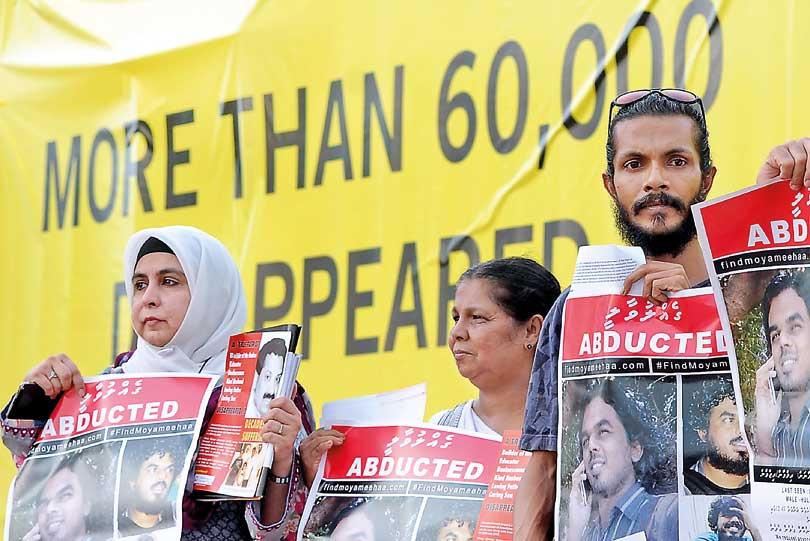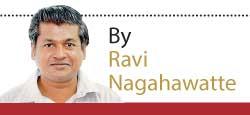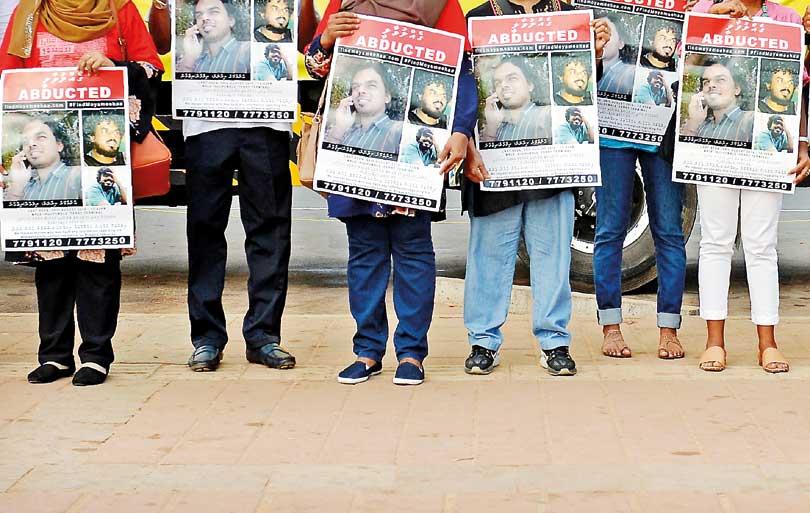Reply To:
Name - Reply Comment

 Sri Lanka remains a concerned nation these days due to the simmering tensions between India and Pakistan and the upcoming scheduled visit to Geneva where the island’s government representatives have to show progress in adopting human rights resolutions.
Sri Lanka remains a concerned nation these days due to the simmering tensions between India and Pakistan and the upcoming scheduled visit to Geneva where the island’s government representatives have to show progress in adopting human rights resolutions.
Sri Lanka is a country which takes pride in aggressively showcasing its 2500 plus years of cultural heritage. But it has been found wanting when it comes to clearing war crimes allegations and improving on a tarnished human rights track record.
In this context former Northern Province Chief Minister CV. Vigneswaran has critisised the UNHRC of giving Sri Lanka more time to implement the UNHRC resolution of October 2015. Vigneswaran’s opposition is backed by the reasoning that there is no sense in giving Sri Lanka more time because the country’s president Maithripala Sirisena had said that the condition of inquiring into war crimes would not be implemented.
But days ahead of Sri Lanka’s expected visit to Geneva, the Government of Sri Lanka (GoSL) is on a hunt to nab one of its former security forces commanders for alleged human rights violations. The latest person in the hunted list is former Navy Commander Admiral Wasantha Karannagoda who runs the risk of being arrested in connection with his alleged involvement in the abduction and killing of 11 youth. Karannagoda has in fact sought the assistance of the law to obtain an interim injunction order to prevent him from being arrested.
Sri Lanka must hire or assign competent diplomats to attend UN’s interactive discussion with States and non-governmental organisations. Here the reports or oral briefings on Colombia, Cyprus, Guatemala, Honduras, Iran, Venezuela and Yemen, and on promoting reconciliation, accountability and human rights in Sri Lanka will be presented
For the record there were alleged human rights violations by both government troops and tiger rebels during the three decade old civil war. However the foreign media has focused on the rights violations by the Sri Lanka Government’s security forces because that helps sell newspapers. Very little is spoken about the mass killings by the LTTE. And even if someone does, this rebel organisation is now defunct and there is no one to take responsibility for its atrocious acts of violence. This is where the whole judging process of the conflict becomes quite unfair.
Very recently three retired services forces commanders namely Air Chief Marshal Roshan Goonatilake, Admiral Thisara Samarasinghe and General Daya Rathnayake addressing a media conference requested the President to intervene and ensure that there is dignity in the lives of government forces personnel who risked their lives during the war.
Sri Lanka must hire or assign competent diplomats to attend UN’s interactive discussion with States and non-governmental organisations. Here the reports or oral briefings on Colombia, Cyprus, Guatemala, Honduras, Iran, Venezuela and Yemen, and on promoting reconciliation, accountability and human rights in Sri Lanka will be presented. Sri Lankan representatives must fight the country’s case rather than withdraw from the co-sponsorship of the 2015 UNHRC resolution. The UNHRC understands rights issues but certainly not war conditions where tiger rebels even used their own Tamil brothers and sisters as human shields during the final stages of the conflict.
While the focus during the Geneva sessions will be on Sri Lanka, the islanders seem to be building the tempo for it by showing that the government is doing its own investigations. But what’s serious here is the allegation that there was a demand for ransom in connection with the 11 youth who were abducted and killed. Karannagoda maintains that false information is being used against him. If the ransom claims are proven it would spell doom for the Sri Lanka Navy. This is why current Navy Commander Vice Admiral Piyal De Silva said that its absolutely vital for the Sri Lanka Navy to clear its name for all these allegations. According to him the Sri Lanka Navy takes the case where the 11 youth were abducted very seriously. He has said in an interview with the Daily Mirror that he strongly discourages employees of the sea going force from engaging in unnecessary practices.

Sri Lanka has done much development work in the north to build roads and reconstruct buildings which were smashed to the ground during the civil war. But the Tamil community and the outside world don’t judge a nation by the money it spends on development. The measuring stick the outside world uses to judge progress has much to do with how we implement human rights practices in the country.
Sri Lanka has won acclaim for its demining programme at the Geneva International Directors’ Meeting.
But the Government mechanism has not won the confidence of the minority Tamils when it comes to the cases of disappearances. Vigneswaran has been very vocal about this and even called for the intervention of the International community regarding this matter. He has maintained that the Tamil people expect at least after the war that the Government would abide by its obligation of meeting out justice to those affected by the civil war. The GoSL has to put to best use the extended time given to implement the UNHRC resolutions of October 2015.
It’s not only the 11 youth whose killings have come under the spotlight, the GoSL must also look into the grievances of minority Tamils who wail the disappearances of their kith and kin and those languishing behind bars as political prisoners.
If Government officials are feeling the heat right now due to low wind speeds in the environment, they are going to ‘burn’ in Geneva if they step into the UN office unprepared while presenting its case regarding promoting reconciliation, accountability and human rights.